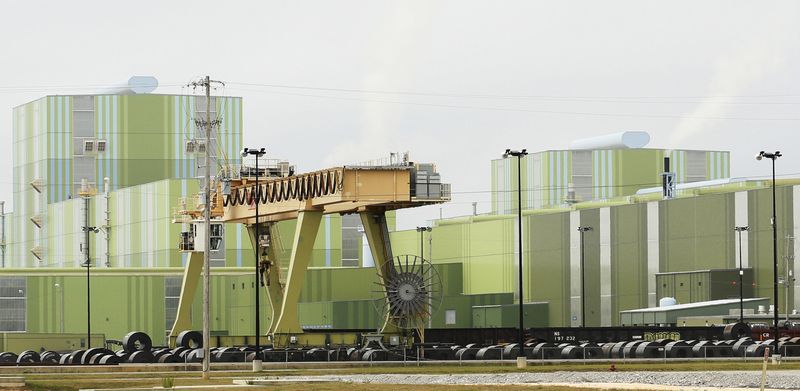WASHINGTON (Reuters) – U.S. industrial production fell for a second straight month in October, continuing to be depressed by hurricanes and a strike by factory workers at Boeing (NYSE:BA), but a rebound is likely in November as the drag from these factors lifts.
Industrial output dropped 0.3% last month after a downwardly revised 0.5% decline in September, the Federal Reserve said on Friday. Economists polled by Reuters had forecast industrial production falling 0.3% after a previously reported 0.3% decrease in September.
The Fed estimated that the strike depressed industrial production by 0.2 percentage point in October after exerting a 0.3 percentage point drag in September. Hurricane Milton and the lingering effects of Hurricane Helene subtracted 0.1 percentage point from production. The strikers returned to work last week after accepting a new contract and disruptions from the hurricanes have almost faded.
Industrial production slipped 0.3% year-on-year in October.
Factory output decreased 0.5% last month after falling 0.3% in September. Production at factories declined 0.3% on a year-on-year basis. Manufacturing, which accounts for 10.3% of the economy, has struggled amid higher interest rates. It is likely to stay in a holding pattern for some time even as the U.S. central bank has started its easing cycle.
U.S. Treasury yields have surged as investors fear that economic polices by President-elect Donald Trump’s incoming administration could stoke inflation and narrow the scope for rates next year.
Motor vehicle and parts output dropped 3.1% last month, while production of aerospace tumbled 5.8%. That resulted in durable manufacturing production falling 1.2%. Nondurable manufacturing output inched up 0.1% as gains in the production of chemicals, paper petroleum and coal products offset declines in output at textile mills as well as apparel and leather, printing and support, and plastics and rubber products.
Mining output rebounded 0.3% last month after dropping 1.9% in September. Utilities production rose 0.7% after gaining 0.3% in the prior month.
Capacity utilization for the industrial sector, a measure of how fully firms are using their resources, fell to 77.1% from 77.4% in September. It is 2.6 percentage points below its 1972–2023 average. The operating rate for the manufacturing sector dropped 0.5 percentage point to 76.2%. It is 2.1 percentage points below its long-run average.



